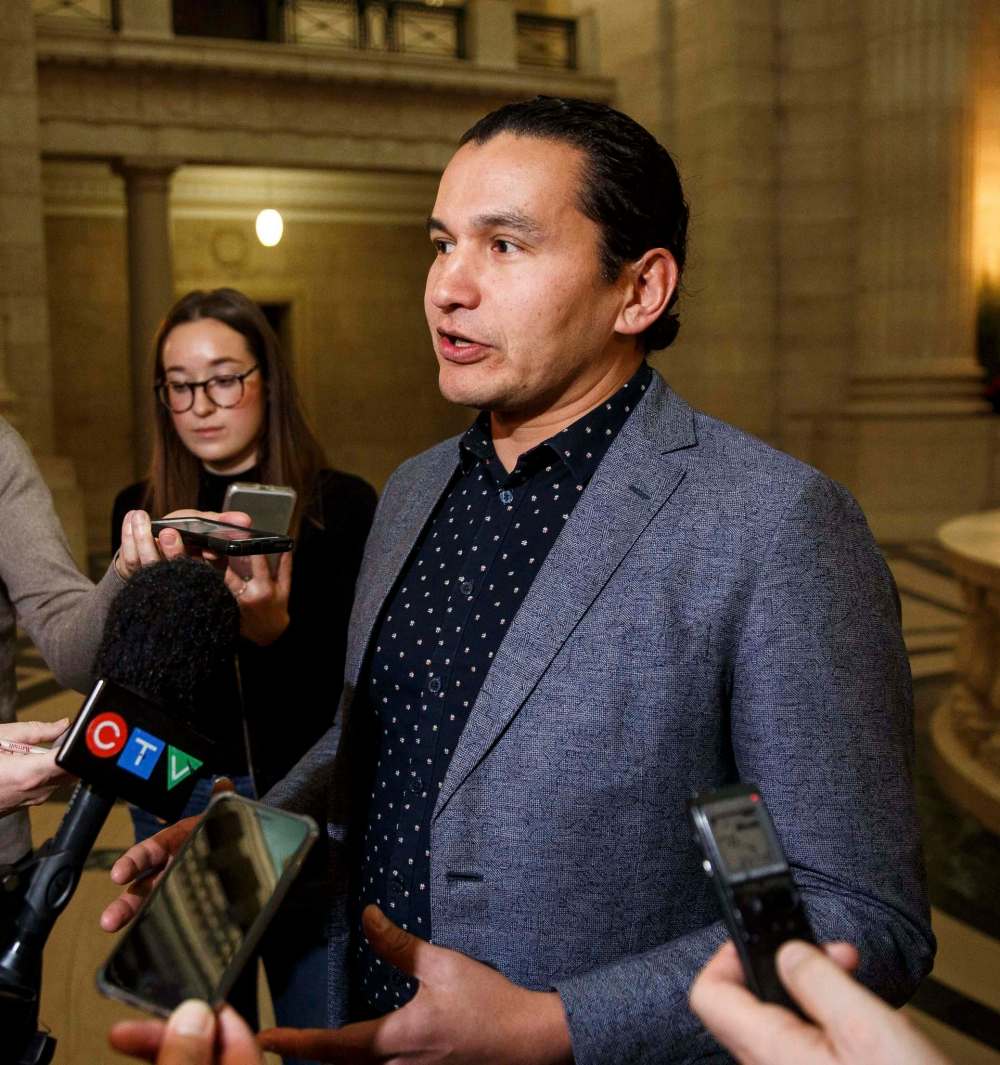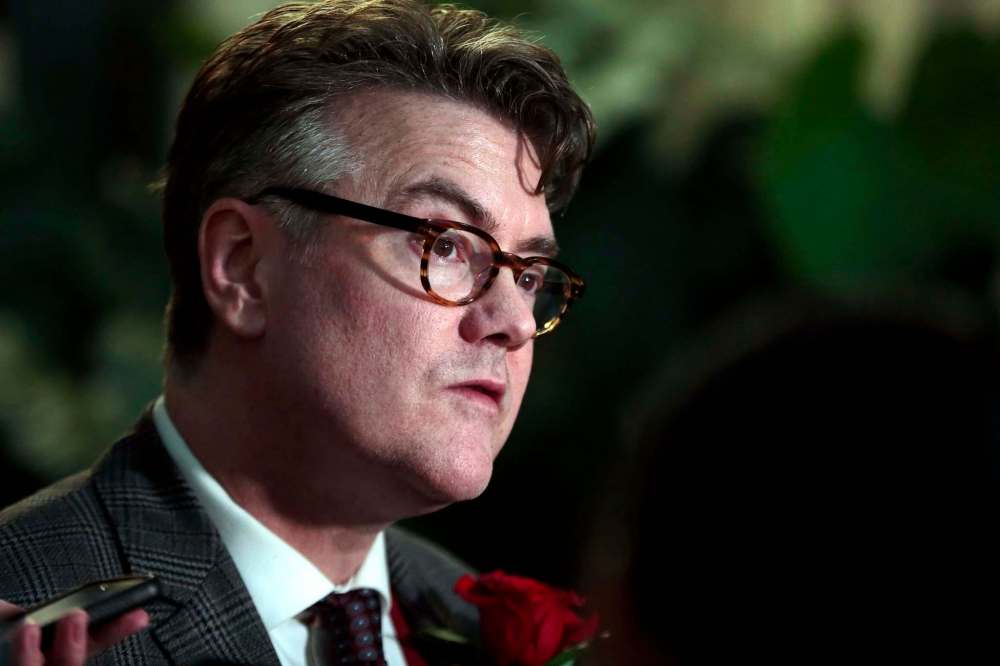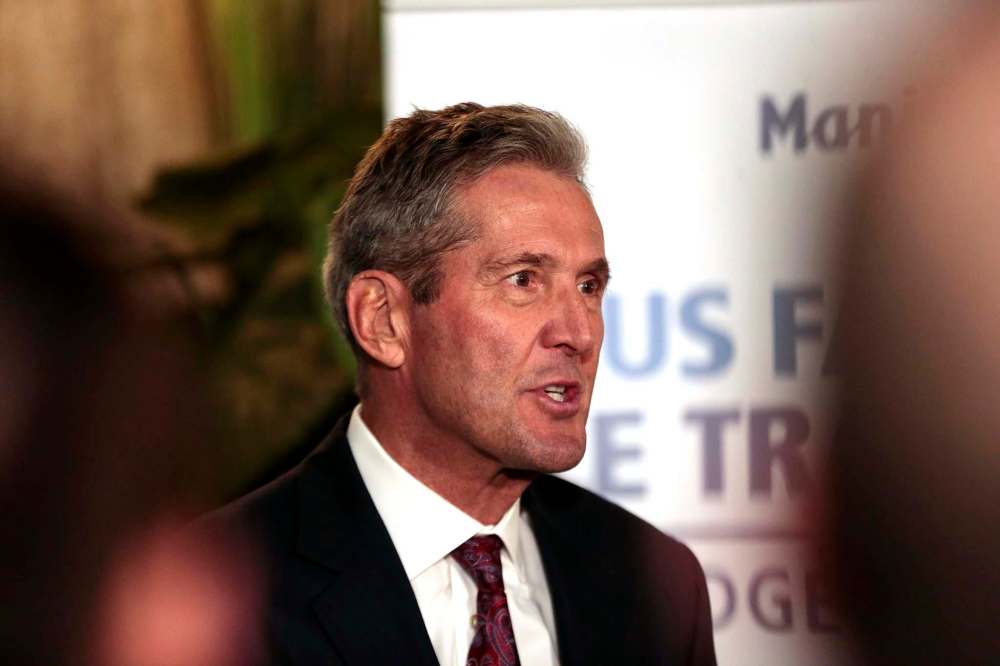Ending vote subsidy favours rich: critics
Pallister's plan to kill election rebates 'bad for democracy'
Advertisement
Read this article for free:
or
Already have an account? Log in here »
To continue reading, please subscribe:
Monthly Digital Subscription
$0 for the first 4 weeks*
- Enjoy unlimited reading on winnipegfreepress.com
- Read the E-Edition, our digital replica newspaper
- Access News Break, our award-winning app
- Play interactive puzzles
*No charge for 4 weeks then price increases to the regular rate of $19.00 plus GST every four weeks. Offer available to new and qualified returning subscribers only. Cancel any time.
Monthly Digital Subscription
$4.75/week*
- Enjoy unlimited reading on winnipegfreepress.com
- Read the E-Edition, our digital replica newspaper
- Access News Break, our award-winning app
- Play interactive puzzles
*Billed as $19 plus GST every four weeks. Cancel any time.
To continue reading, please subscribe:
Add Free Press access to your Brandon Sun subscription for only an additional
$1 for the first 4 weeks*
*Your next subscription payment will increase by $1.00 and you will be charged $16.99 plus GST for four weeks. After four weeks, your payment will increase to $23.99 plus GST every four weeks.
Read unlimited articles for free today:
or
Already have an account? Log in here »
Hey there, time traveller!
This article was published 08/03/2019 (2472 days ago), so information in it may no longer be current.
The Pallister government plans to eliminate government subsidies to parties and candidates for provincial campaign expenses, a move that critics say will favour wealthier parties and candidates.
The government introduced the amendment to The Election Financing Act as part of its budget implementation bill on Thursday. It would do away with subsidies that reimburse 50 per cent of campaign expenses, such as advertising, office space and wages. To qualify for the rebate, parties and candidates must receive at least 10 per cent of the vote.
For major parties, the rebate can total $1 million or more.

“That’s a subsidy directly to political organizations that does nothing for Manitobans,” Premier Brian Pallister said Friday. “Manitobans don’t get 50 per cent back when they have a small business and they buy ads.”
Paul Thomas, professor emeritus of political studies at the University of Manitoba, says smaller parties such as the Liberals and the Greens will suffer the biggest hit.
“It’s consistent with Pallister’s view that public money shouldn’t be used to any great extent to finance elections beyond the cost of planning and executing elections by (Elections Manitoba),” he said.
Thomas said he has his misgivings about the measure. “On balance, I don’t think it’s a good thing. Especially if it represents the next stage in a trend towards making elections based almost exclusively on private financing. That would be an unfair advantage for certain parties,” he said.
‘Bad for democracy’
Liberal Leader Dougald Lamont said he opposes the measure, calling it “bad for democracy.”
“It makes it very, very hard for people who have trouble fundraising or who don’t win to pay off debt, right? Which is totally unfair. So, basically it scares off people who should be running and could be running because they might be afraid they might not be able to pay their bills,” Lamont said.
NDP Leader Wab Kinew said the amendment could discourage women, Indigenous people, people of colour and independent candidates from running.
He said he’s already been hearing from women who are interested in running for office but are worrying about fundraising.
“If this change takes place, what it’s going to mean is that those potential candidates are more likely to be on the hook for post-campaign debt,” Kinew said. “They’ll have to do more fundraising after a campaign, which is way more difficult than doing the fundraising ahead of time.”

Soon after winning the April 2016 election, the Progressive Conservatives abolished an annual subsidy to political parties that provided them with operating funds based on the number of votes they received in the last election. The Tories never accepted the subsidy, calling it a “vote tax.”
Green party Leader James Beddome said he isn’t a big fan of the 50 per cent reimbursement for candidates and political parties, although he has used it himself in the past. He said he preferred the previous per-vote subsidy the Tories did away with three years ago.
Tories least likely to be affected
The PCs, who have out-fundraised their opponents in recent years, are least likely to be hurt by the proposed measure, which would come into effect when Bill 16, The Budget Implementation and Tax Statutes Amendment Act (BITSA) receives royal assent.
Under the amendment, candidates will still be eligible for 100 per cent reimbursement of child care and disability expenses if they receive at least 10 per cent of the vote in their constituency.
Pallister said the change should open the door to more political participation.
Independent candidates and smaller organizations such as the Green party often don’t receive reimbursements because they fail to reach the required 10 per cent vote minimum. They will no longer be at a disadvantage, he said.
The government said that in the 2016 election, independent candidates received only $8,580 out of about $3 million in subsidies.
In the 2011 election, the Liberal party failed to garner 10 per cent of the popular vote and missed out on the subsidy. However, in 2016, it met the vote threshold, and received $120,612, while 38 Liberal candidates qualified for rebates.

— with files from the Canadian Press
larry.kusch@freepress.mb.ca
jessica-botelho@freepress.mb.ca

Our newsroom depends on a growing audience of readers to power our journalism. If you are not a paid reader, please consider becoming a subscriber.
Our newsroom depends on its audience of readers to power our journalism. Thank you for your support.
History
Updated on Saturday, March 9, 2019 8:16 AM CST: Final


